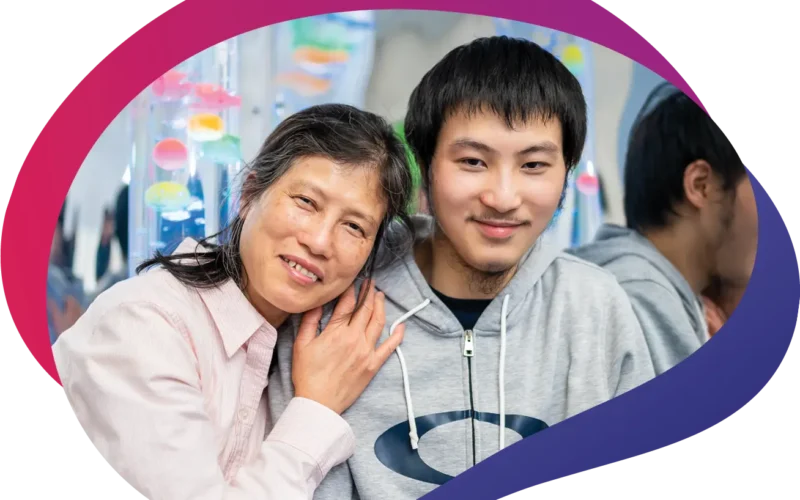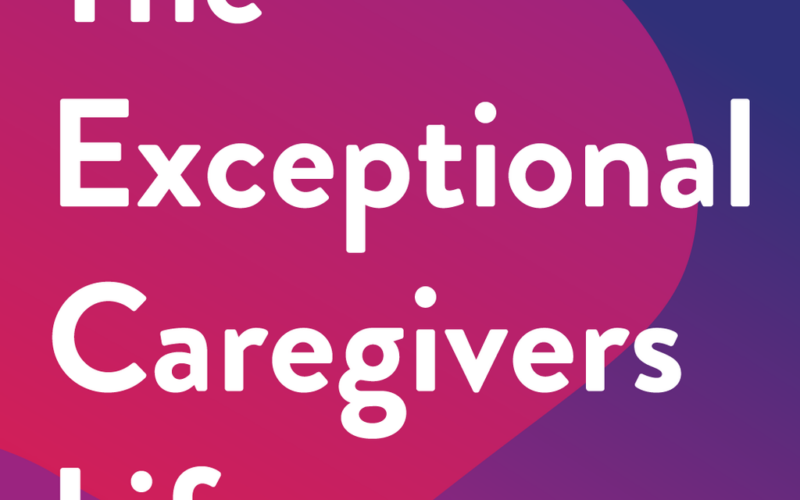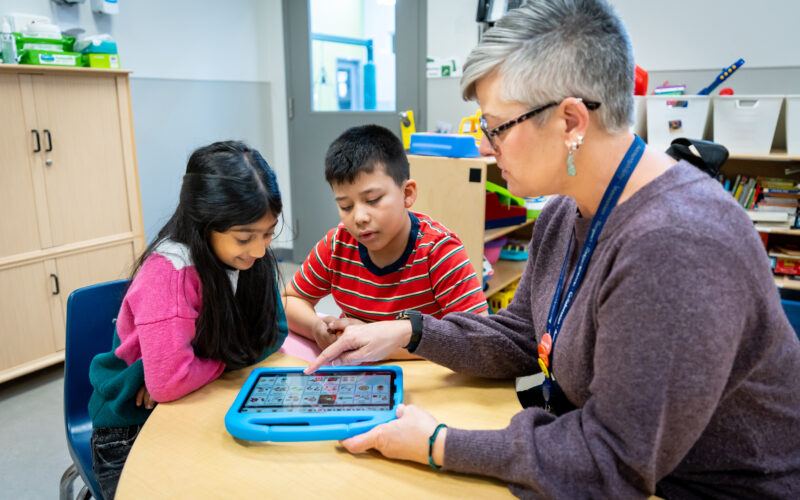Introduction to an Autism Diagnosis
We know the time following a new autism diagnosis can be overwhelming and emotionally challenging. It’s a significant moment that marks the beginning of a new chapter in your family’s life. For some families, the news might come as a shock, while others may have been expecting it. It’s a different experience for every parent, and that’s absolutely ok.
You likely have a lot of questions and concerns about what lies ahead. You are not alone, and it is common to feel this way. As a caregiver, thinking about what’s ahead can be daunting. The important thing is to take the time you need on this journey and explore what support is available, including evidence-based autism services that can guide your child’s development.
What is ABA Therapy?
Applied Behaviour Analysis (ABA) is an evidence-based therapy that uses scientific principles of learning and behaviour to help individuals with autism acquire valuable skills through the power of positive reinforcement and teaching. At Surrey Place, our team includes Board Certified Behavior Analysts (BCBAs), Registered Behaviour Analysts (RBAs) and other experienced clinicians who tailor programs to each child’s needs, ensuring that interventions are both research-driven and family- focused.
Starting ABA Therapy
Selecting the right ABA therapy services can feel overwhelming, but understanding the process can help you feel more confident. At Surrey Place, we combine expert guidance, a compassionate approach, and individualized support to help your child reach their full potential. Whether your child has recently been diagnosed with autism, you’re new to ABA therapy, or you’re seeking the next steps in your child’s development, we’re here to help.
Choosing the Right ABA Program for Your Child:
We’ve made it easier for clients to begin with our personal consultation program called Discover Your ABA Journey. During this 2-hour service navigation consultation, you’ll sit down with our experienced clinicians committed to seeing your child succeed. We help answer your questions and provide detailed information on how our services can benefit your child and family.
- Goal-setting: Clinicians will identify your child’s strengths and challenges. This will aid in identifying specific, measurable targets that resonate with your and your child’s personal goals and your aspirations for them and align with proven ABA techniques.
- Tailored Programs: Together, we will create a customized program and personalized service
recommendations tailored to your child’s needs. These individualized ABA interventions will
greatly impact your child’s social, communicative, and adaptive skills for years to come.
Explore Inspiring Child Development Milestones
As a parent, searching for the best way to support your child’s development is a top priority. The benefits of ABA therapy can extend beyond therapy sessions, which can profoundly influence your child’s daily life. Families report improvements in at least one key skill area, such as communication, social interaction, or independence.
The skills learned through ABA often translate into real-world applications, improving independence in various settings—home, school, and community. As children incorporate these skills into their routines, they gain confidence and autonomy with their communication and social skills, transforming their daily experiences and enhancing their overall quality of life.
“We have seen an increase in independence for many children and teens attending our services,” said Courtney Vibert, our Parent Education and Quality Assurance Manager and Registered Behaviour Analyst. “From successful toilet training to brushing their teeth to making snacks and tidying up, families have reported that their children are taking significant steps toward greater autonomy in these daily tasks and responsibilities. One caregiver recently shared that her teen made dinner for the family for the first time after attending our “Kitchen Safety” group!”
Interested in learning more about these services? Explore our Autism Services to find the right fit for your family.
Real-Life Impact
Hearing about other families’ experiences can be helpful and reassuring – especially when it comes to something as personal as ABA therapy. At Surrey Place, we have witnessed incredible ABA therapy milestones from the families in our programs, and we offer a wide range of ABA services that help children reach specific goals. Explore some of the specific skill areas we target:
Communication Milestones
Groups like Functional Communication Training and Early to Intermediate Communication are specifically focused on helping children with their communication skills. Through these autism communication programs, children gain communication systems or use more words and sentences when communicating with others at home or in the community. “Parents have mentioned that their children feel more engaged and express themselves more effectively in conversations,” said Vibert.
Social Milestones
Many families have shared positive feedback with me about their child’s social skills and the increased opportunities for positive social interactions they receive in our programs,” says Vibert. Our Social Stars group is specifically designed to support children with autism improve social interactions by practicing essential skills like greetings, turn-taking, sharing, and parallel play. We also offer groups such as Children’s Friendship Training and PEERS, where the focus is on developing the skills and confidence to build and maintain friendships. “Caregivers have said that their kids are playing more with other children, showing increased interest in others, and engaging more with their peers.”
Behaviour and Emotional Regulation Milestones
Children are using the skills they’ve learned through our ABA therapy services, such as identifying emotions, learning about the situations that are challenging for them, and using various strategies to support their regulation during these difficult situations. “Families are sharing that their children are showing more confidence in managing their emotions and that they as caregivers are feeling more equipped to support their child, which is wonderful to hear!” shares Vibert. Emotional regulation is a complex skill that often requires ongoing support and repeated practice, so we also offer education sessions for families to learn to support their child’s developing emotional regulation skills during our Take a Deep Breath service. We also offer 1:1 Focused Behavioural Intervention for Behavioural Challenges, starting at 4 hours per week, designed to support children and teens with more extensive behavioural needs such as elopement, self-harm, aggression, or destruction of property.
Celebrating milestones is a vital part of the ABA therapy journey, as it reinforces positive behaviour and motivates clients to keep pushing forward. Whether big or small, each achievement deserves recognition, creating a culture of encouragement.
Learn more about how we can help your child achieve these milestones. Discover our specialized ABA groups.
Beyond the Milestones
The journey of ABA therapy is not a destination but a lifelong path of growth and development. It isn’t just about addressing challenging behaviours—it’s about empowering individuals and their families to lead more independent, fulfilling lives. From improving social skills to enabling effective communication, ABA therapy creates a ripple effect of positivity.
As your child achieves their initial goals, they often uncover new aspirations and challenges to explore. This continuous evolution encourages a mindset of lifelong learning, inspiring them to seek further personal development.
The foundational skills gained through ABA therapy provide a solid foundation for navigating life’s complexities, preparing your child to adapt to new environments and experiences. As they move forward, the principles of ABA therapy remain embedded in their approach to challenges, fostering ongoing resilience and personal growth throughout their lives.
We’re here for you
Navigating an autism diagnosis can come with a range of rewards and challenges, and we want you to know you are not alone in this process. If you’re curious about autism support services and how ABA therapy can benefit your child, explore our range of autism services designed to meet diverse needs.
We’re here to help at every stage in your autism journey.
Learn more about our Autism Services navigational tool – Now what?


